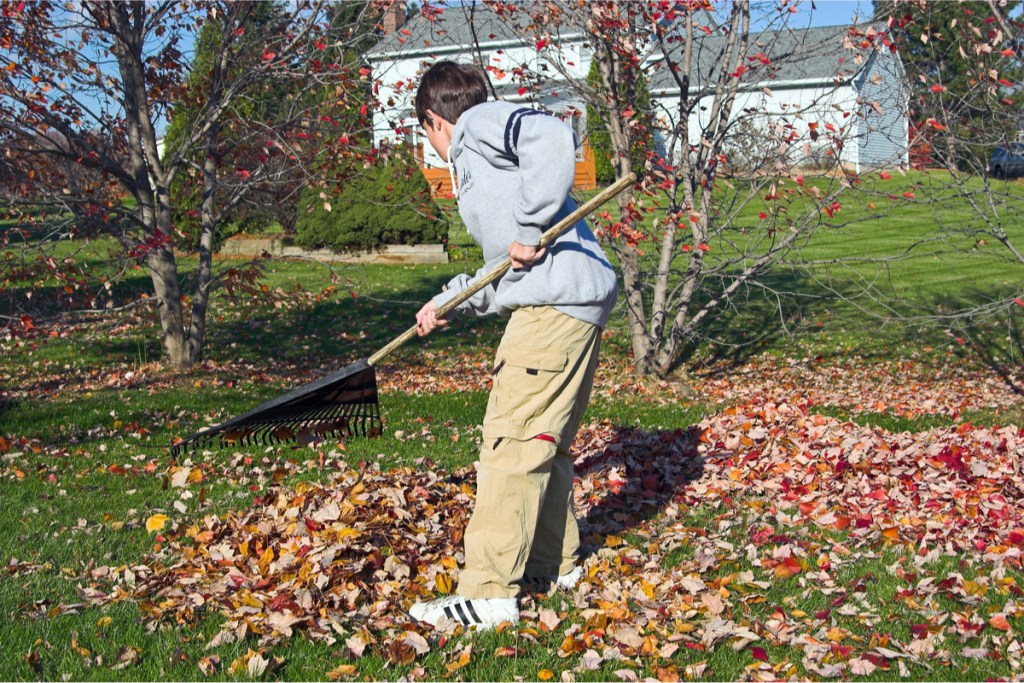
Regardless of how much eye-rolling and verbal protest they will be met with, having a set of house rules for teens to abide by is important. Establishing these house rules for teenagers presents a challenge to both parents and teens, but it’s a necessary step toward teaching your kids a vital life skill — which is taking accountability for one’s actions. You’re also keeping your teen grounded in reality by establishing boundaries and communicating the message that every place and every situation has ground rules and that they are accountable for following theirs.
House rules may be a pain for your kids, but implementing them doesn’t have to be. We’ve compiled some great ideas that’ll make the process less painful. Furthermore, if you involve your teen in setting up the rules and consequences, then most likely, you’ll get more buy-in.

What are some good house rules for teenagers?
The trick to setting up house rules for teenagers involves allowing them enough space to learn from mistakes and celebrate their triumphs, all while giving them enough guidance to keep them safe and make the right choices. It’s a delicate situation at times, but here are five rules to start with:
1. You will have a curfew
Setting up a reasonable curfew not only keeps your teen safe and ideally out of trouble, but it also helps them to maintain healthy sleep patterns and self-discipline. After all, most trouble usually occurs after the “bewitching hour.” Plus, your kid will have a job someday — possibly on the weekends — that requires them to get plenty of rest.
2. You will limit your screen/social media time
Keeping the phone, game system, or tablet turned off is a definite must when you’re trying to teach your teen healthy habits. Setting reasonable limits on their screen and social media time can prevent certain physical and mental health issues that stem from prolonged screen time. Likewise, use this opportunity to encourage your teenager to seek out in-person contact with friends and family.
3. Everyone at home has chores
This statement is the absolute truth. You and your partner might share in the household duties, which sets a good example, but incorporating chores into the house rules for teens shows them how to take care of their own living space and teaches them how to take responsibility and help out as a member of the family.
4. Abide by the Golden Rule
At this point, your teenager knows that respect for others is key to establishing and keeping healthy relationships. However, being that everyone is only human, you can use disagreements as teachable moments for modeling constructive conflict resolution and communication. Also, this presents an opportunity to teach them about consideration and respecting other people’s boundaries.
5. Remember not to take trust for granted
While the concept of trust might not seem to fall into the category of house rules, it still relates to responsibility, honesty, and natural consequences. For instance, if your teen lies about where they’re going on Saturday, and you find out, you might have a hard time believing them — at least for quite a while. Also, if you trust your child to use social media safely and prudently, but they post something inappropriate, then trust is hard to come by.
You can teach your child that their word or promise means a lot to a family member or to a friend. Trust shouldn’t be taken for granted. At the same time, you can also differentiate between trust and unconditional love, which of course, your teen will never lose. They might make a mistake, but you’ll always love that person.

What rules should 14-year-olds have?
Younger teens, like 14-year-olds, might require slightly different rules than older teens of 17 or 18. They can’t legally drive yet, but they need a social life — and a ride on occasion. So, the rules mentioned above definitely apply, but you might need to make a few adjustments. For instance, the curfew for going out might be earlier, or you can encourage your teenager to invite friends over for a game or movie night. Either way, remember that you’re playing chauffeur for a bit longer, so patience is key.
At age 14, you might start establishing more open communication with your child about tough subjects, such as relationships, drugs, and alcohol. Knowing that relationships are bound to happen, this is still a learning process. You can help your teen learn the signs of a healthy relationship or a toxic one, and how to avoid the latter. As for controlled substances, you might discuss the health issues that come about from ingesting these chemicals, not to mention the legal penalty for a juvenile who makes those choices.
Ultimately, the key idea to remember about the early teen years is to give just enough freedom for learning, but not so much that your child has no idea of the expectations or consequences.

What are the roles and responsibilities of a teenager at home?
As children get older, they hope to gain more freedom, but with freedom comes responsibility, like helping out at home and maintaining school performance. Luckily, there is one way to handle this situation without complicating the matter too much for either party, and that is to set aside some time with your teen to establish a house rules contract. Placing all rules and responsibilities in writing makes them more concrete and memorable, which means your teenager will be held accountable and not be able to say, “I didn’t know,” or “I didn’t understand” if an issue comes up.
Moreover, this contract that lists roles and responsibilities should include parents and siblings. This keeps your youth from feeling set apart from the other siblings. When your kid actively participates in this process, then, as mentioned in the beginning, you’ll get more cooperation, and best of all, communication. Of course, you’ll need to establish the non-negotiables that work for your family, like the curfew, chores (though your teen can give some preferences), and when they can use their devices.

Why house rules are important
House rules will vary from house to house depending on the age of the children involved and personal circumstances, but the benefits of house rules are for everyone. Working with your children to decide on the house rules and the punishment that comes when those rules aren’t followed helps create a bond among all members of the family while encouraging healthy communication.
It also helps teach responsibility and accountability to all ages while also fostering a collaborative environment in the family. When kids have a say in the rules they must follow and the consequences for breaking those rules they feel more empowered, respected, and heard in their home.

What to do if your teen doesn’t follow the house rules
You’ve sat down with your child and discussed the house rules, but what do you do if they don’t follow them? You probably discussed the consequences with your teen if they don’t follow the rules, and now’s the time to follow through. It’s hard for parents to always feel like the bad guy, especially when it comes to punishing their teen, but experts agree that enforcing the rules and consequences that go with it is crucial for success.
Coming up with house rules for teens might be the simple part, whereas enforcing them could present a challenge. Regardless, when you clearly outline those expectations and set the limits, your teen will not only come to understand them and cooperate, but they will even appreciate the boundaries and the life lessons.



